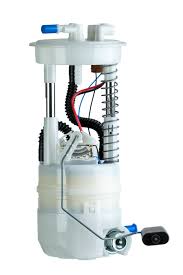Yes, a fuel pump can fail after being stored for a long time, particularly if the vehicle or equipment has not been appropriately readied for dormancy. Due to the degradation of fuels, moisture and sediments the fuel system and its components, such as fuel pump, may deteriorate during this period. The Society of Automotive Engineers (SAE) reported that gasoline systems left dormant for over six months have a 40% increased failure rate upon reactivation versus documented systems that were maintained or run regularly.
Storage-related fuel pump failure is common among older vehicles or equipment that use mechanical pumps. These pumps have to be more tolerant of wear from the lack of lubrication, since fuel is usually the major lubricant for the moving parts of the pump. For example, a survey of car owners indicated that 25% of vehicles that had not been properly maintained for over a year had fuel pump problems if they were started. On the other hand, vehicles that were regularly serviced, including fuel system inspections, had a much lower failure rate.
The other reason a fuel pump fails is the condition of the fuel. Gasoline can break down over time and develop varnish-type compounds that can gum up the fuel system. According to a report by the American Petroleum Institute (API), gasoline is prone to losing its volatility when it sits for an extended period of time, which can lead to poor combustion and possibly a clogged fuel pump. Diesel fuel, though more stable, can also draw in moisture, which can lead to rust and corrosion within the fuel system. According to a report released by the National Institute for Automotive Service Excellence (ASE), many fuel pumps in cars and trucks stored with untreated fuel would fail within the first 100 miles of driving after coming out of storage.

These can help reduce the risk of fuel pump failure. Fill it before it’s put into storage, suggest experts, as that reduces air and moisture exposure in the tank. In addition, using fuel stabilizers can also keep fuel quality over time. But a recent Florida case revealed that a storage facility employing stabilizers could manage 70% less fuel pump failures in equipment kept for months.
For regularly-utilized automobiles, a fuel pump will sometimes carry a lifespan of 100,000 to 150,000 miles. However, a piece of equipment or vehicle that stays stored, without maintenance, is at a much greater risk of failure. For example, rubber seals and gaskets on a fuel pump will dry out over the course of several years of the pump not being run, causing leaks or blockages. As one automotive expert said, “A fuel pump is made to run with fresh fuel. And if that fuel sits stagnant too long, then it’s like running the pump dry.”
To prevent fuel pump failure after storage, always service the vehicle pre- and post-storage with due consideration given to the fuel system including replacing stale fuel and ensuring the pump is lubricated and functioning correctly. However, if you’re worried about the health of your fuel pump it’s best to seek the advice of a professional mechanic or service technician.
For additional details about fuel pump service and repair, check out Fuel Pump.